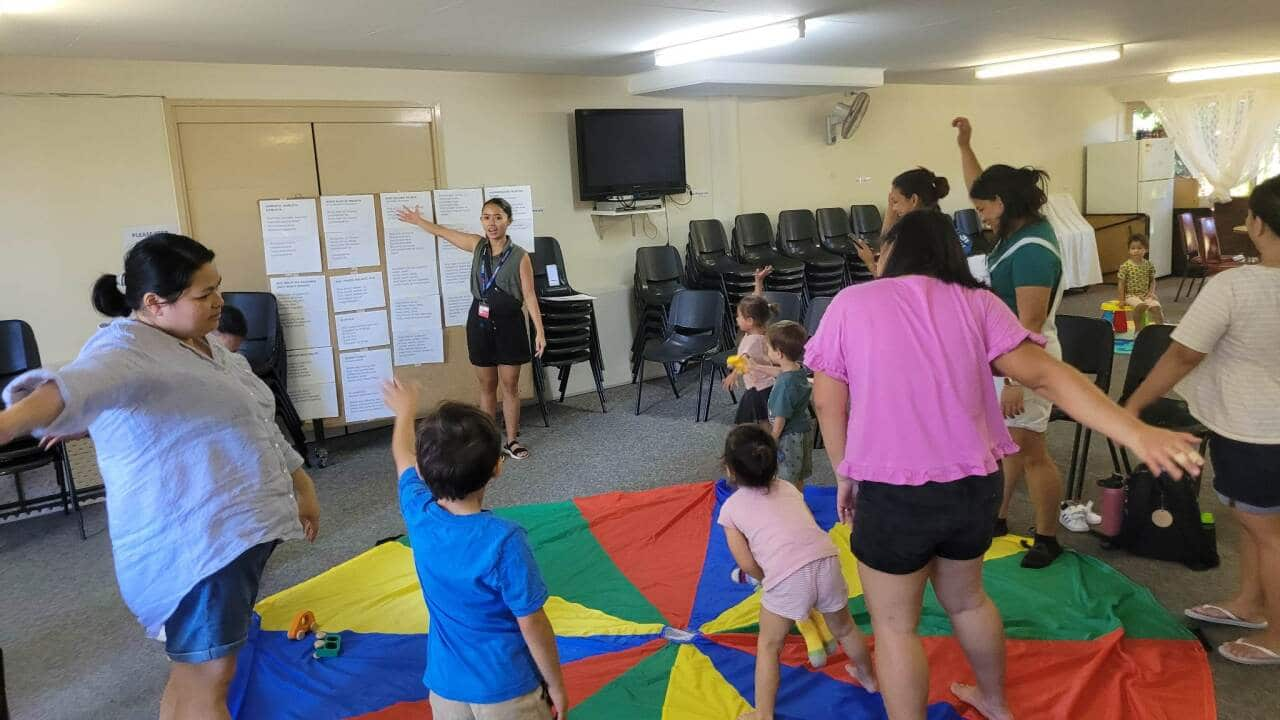Key Points
- The Little Filos Filipino Playgroup is based in Brisbane.
- Language and development progress through play.
- Bilingualism is beneficial for children in their early years.
'Usapang Parental' is SBS Filipino's segment on parenting. It features the stories of migrant families, parenting issues, raising kids, and parenting tips and advice from experts.
Five years ago, Maria Loyola moved to Australia to be with her now-husband.
"As every migrant knows, it's hard to start from scratch. I loved my life in the Philippines. I loved my work in events," the Queenslander shares.

While she is proud of the life and family she has built, she admits longing for the social interaction she used to enjoy back home.
A longing for connection
"When I gave birth to my son, I felt isolated. I'm an extrovert, so it was difficult for me. I love going out and meeting people," she says.
Loyola shares that she learned about playgroups when her son was around six months.
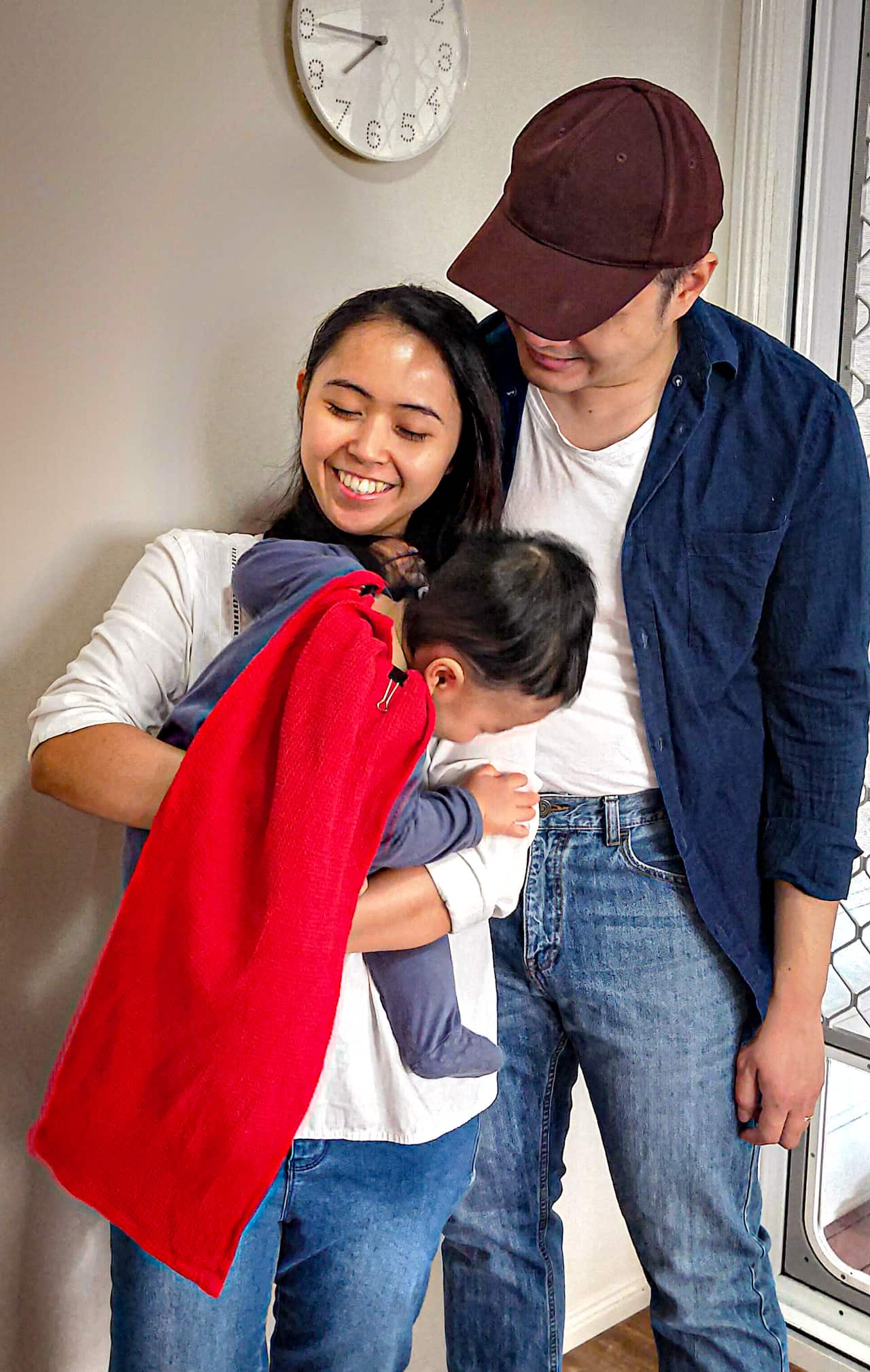
"I was like, 'This is great! When can go out!'
"I was browsing through the website of Play Matters, a not-for-profit organisation that listed playgroups. I saw they had Japanese, Mandarin playgroups. I looked for Filipino playgroups. There was none."
After doing a survey to see how much interest there was in a Filipino playgroup, Loyola decided to create her own.
Language through play
With the help of Play Matters, she established the Little Filos Filipino Playgroup last February.
The playgroup is currently being run by Loyola along with three other volunteers, one of whom is an early childhood educator.
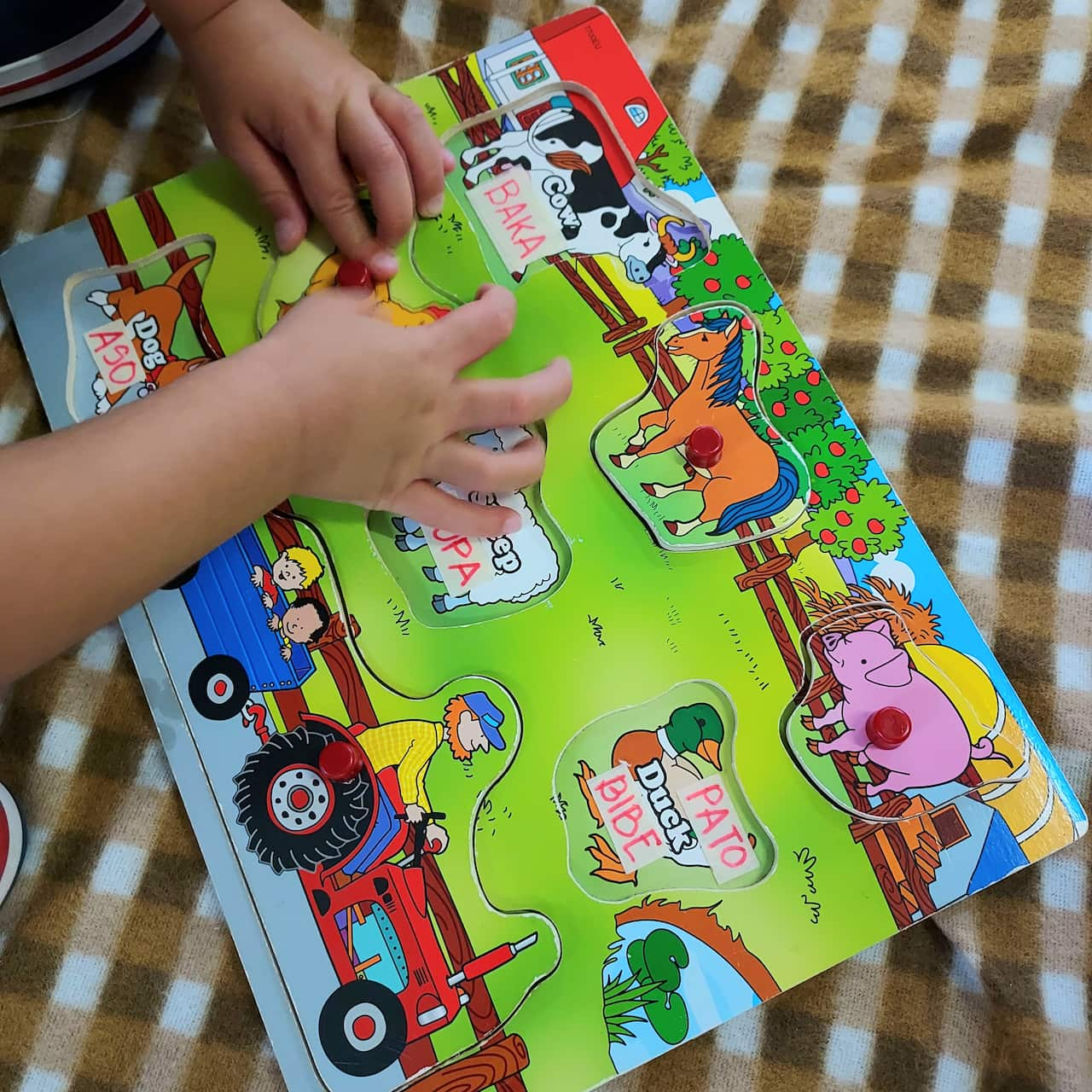
"The venue where we are at is also where a Japanese playgroup holds their sessions. It's a really nice venue that's conducive to learning.
"Playgroups are great because they help kids socialise, hone their gross motor and fine motor skills, and in our group, to learn the Filipino language and culture."
According to studies, language and development build on each other, with both progressing through experience, play and social interactions.
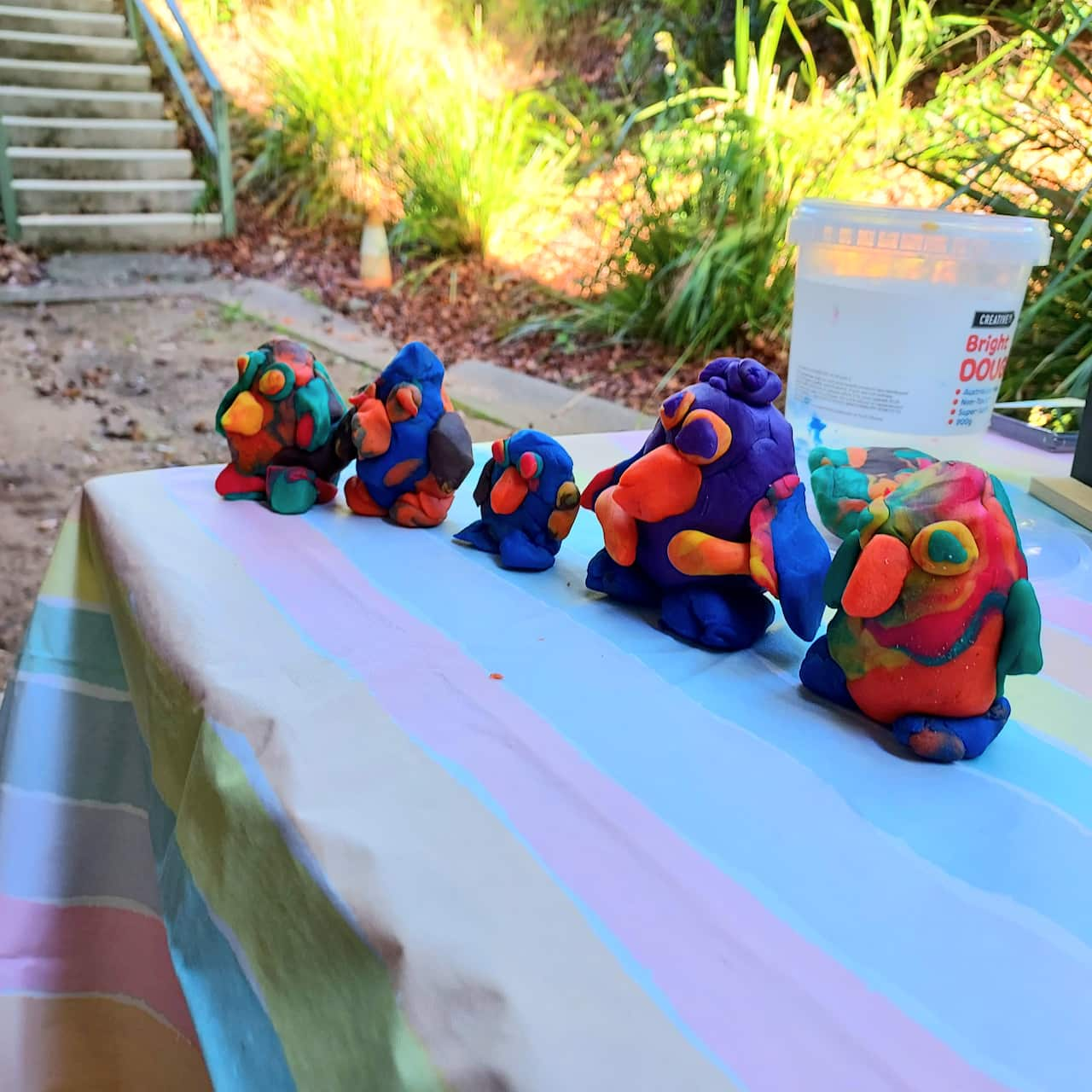
"We're not a formal Filipino class. What we do is we help kids learn the language and culture through play, songs, art and crafts.
"We actually took the idea of library sessions for toddlers wherein they read books and sing. Kids really join in and sing along; so we tried that and it's working!
"One of our children who is half-Dutch really looks forward to our Filipino songs, like 'Sampung Mga Daliri' and 'Nagniningning Munting Bituin'."
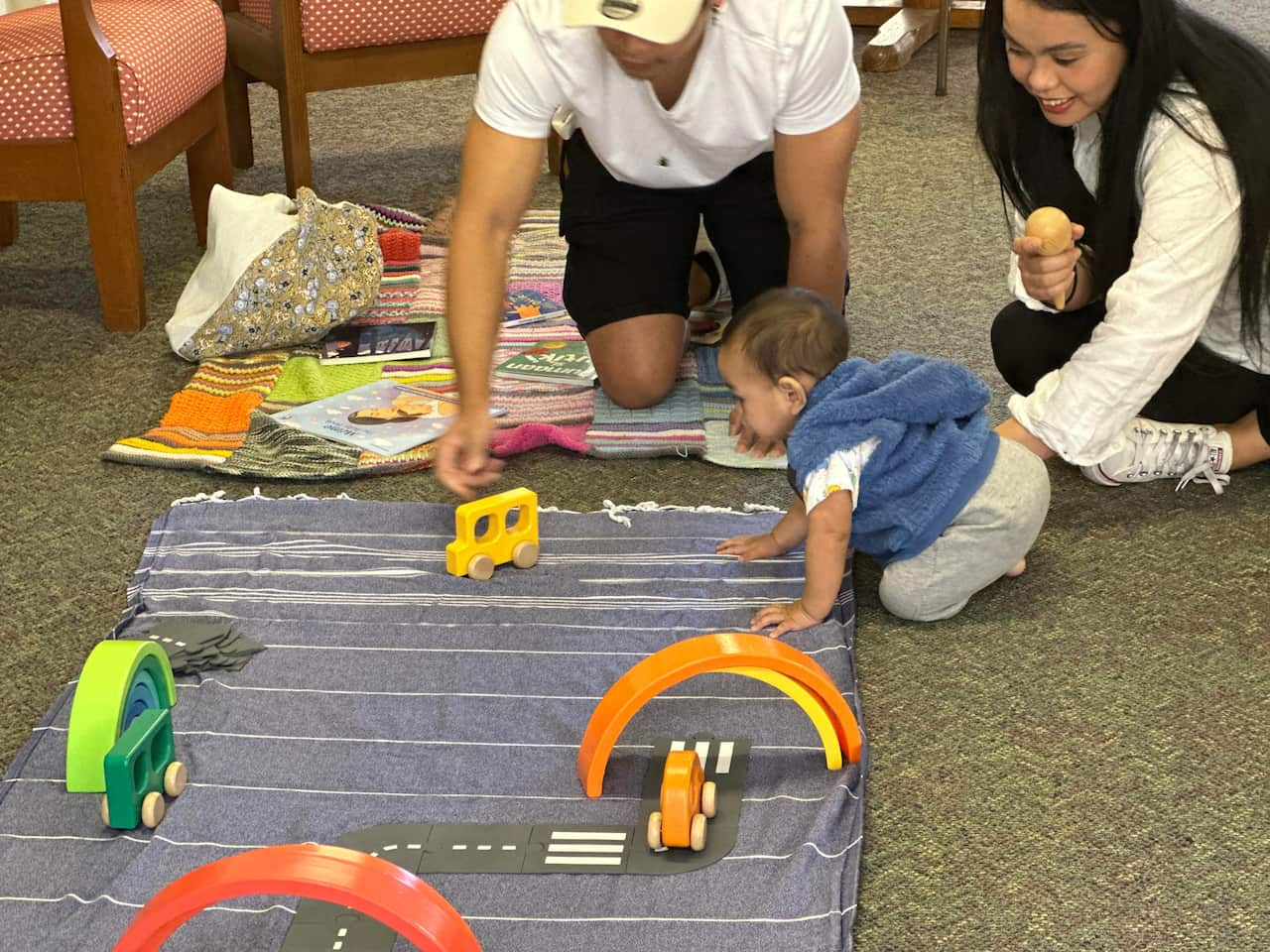
"Kids are more responsive with play, so we have a theme for each session and six play-based learning stations.
"So for example, one time we had animals as our theme. Our song for the day was the Filipino version of 'Old Macdonald Had a Farm'.
"Then we gave them instructions to jump and make the sound of an animal that we mention. We say 'talon!' [jump]. With that simple Filipino instruction, they learn that 'talon' means jump."
'I love being Filipino'
For Loyola, the playgroup is more than about connecting with other Filipino parents and children, it's about connecting with her own identity and passing that on to her child.
She shares that she makes it a point to speak English to her son every morning, but shifting to Filipino in the afternoon.
Studies show that there are many benefits to encouraging bilingualism during a child's early years, such as cognitive advantages.
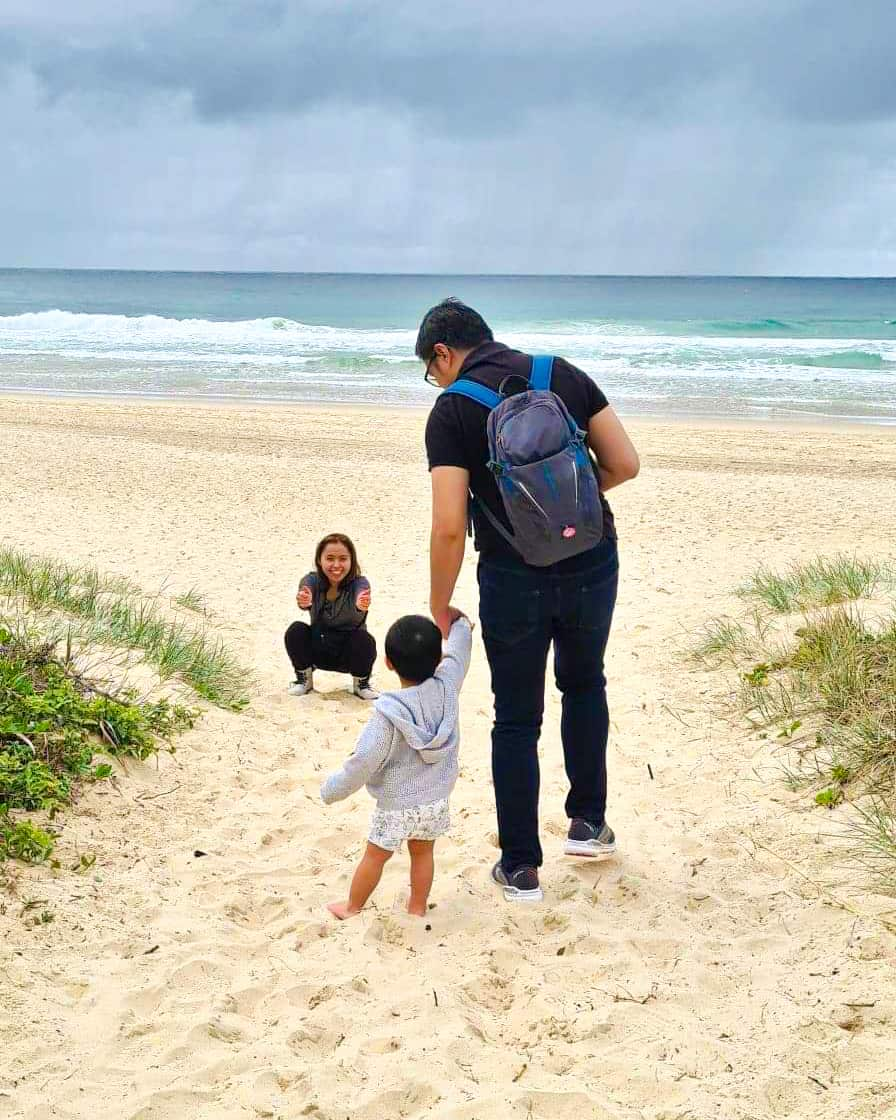
"I love the Philippines and I love being Filipino. I want my son to grow up knowing our culture and speaking our language.
"My father is Bisaya and my mum is Kapampangan. Unfortunately, I didn't practice those languages growing up, which is a shame.
"While we are enjoying our lives here, I don't want my son to forget the Philippines."
